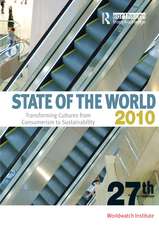Media and New Capitalism in the Digital Age: The Spirit of Networks
Autor E. Fisheren Limba Engleză Paperback – 18 sep 2013
Preț: 383.93 lei
Nou
Puncte Express: 576
Preț estimativ în valută:
73.47€ • 76.42$ • 60.66£
73.47€ • 76.42$ • 60.66£
Carte tipărită la comandă
Livrare economică 14-28 aprilie
Preluare comenzi: 021 569.72.76
Specificații
ISBN-13: 9781137310811
ISBN-10: 1137310812
Pagini: 259
Ilustrații: XII, 259 p.
Dimensiuni: 140 x 216 x 14 mm
Greutate: 0.32 kg
Ediția:2010
Editura: Palgrave Macmillan US
Colecția Palgrave Macmillan
Locul publicării:New York, United States
ISBN-10: 1137310812
Pagini: 259
Ilustrații: XII, 259 p.
Dimensiuni: 140 x 216 x 14 mm
Greutate: 0.32 kg
Ediția:2010
Editura: Palgrave Macmillan US
Colecția Palgrave Macmillan
Locul publicării:New York, United States
Cuprins
Introduction: Technology discourse and capitalist legitimation * Capitalism, technology, and the digital discourse * Contemporary technology discourse * Network market * Network work * Network production * Network Human * Network cosmology and the exhaustion of critique * Networks as the techno-political culture of post-Fordism
Recenzii
HONORABLE MENTION - 2011 ASSOCIATION FOR INTERNET RESEARCH BOOK AWARD
"Fisher's brilliant book provides cogent reasons why we should be skeptical about laptop capitalism and its fluidity and instantaneity of communication. As we surf, text, and post, we are actually becoming more enmeshed in the cyber-networks of command and control that, now as before, bear down heavily. Fisher helps us understand the age of digitality as, above all, capitalist." - Ben Agger, Professor of Sociology and Humanities, University of Texas at Arlington
"This carefully researched and skillfully written guide to the networked world doesn't just demolish the dreamy visions of Utopia 2.0. It provides precisely the comprehensive analysis we need to understand their power and persistence." - Vincent Mosco, Canada Research Chair in Communication and Society, Queen's University, Canada
"This is an audacious systematic ideology-critique of digital capitalism. By meticulously exposing the underlying assumptions and consequences of the digital technology discourse, the book evinces how a seemingly neutral network that creates 'friction free capitalism' germinates a neo-capitalist 'iron cage.' The book reconnects the semiotic and material societal levels. It should be placed on your shelf with Castells' book on informational capitalism, with Dyer-Witheford's on cyber-Marxism or with Mosco's on the digital sublime." - Uri Ram, Professor of Sociology and Anthropology, Ben Gurion University
"Fisher's brilliant book provides cogent reasons why we should be skeptical about laptop capitalism and its fluidity and instantaneity of communication. As we surf, text, and post, we are actually becoming more enmeshed in the cyber-networks of command and control that, now as before, bear down heavily. Fisher helps us understand the age of digitality as, above all, capitalist." - Ben Agger, Professor of Sociology and Humanities, University of Texas at Arlington
"This carefully researched and skillfully written guide to the networked world doesn't just demolish the dreamy visions of Utopia 2.0. It provides precisely the comprehensive analysis we need to understand their power and persistence." - Vincent Mosco, Canada Research Chair in Communication and Society, Queen's University, Canada
"This is an audacious systematic ideology-critique of digital capitalism. By meticulously exposing the underlying assumptions and consequences of the digital technology discourse, the book evinces how a seemingly neutral network that creates 'friction free capitalism' germinates a neo-capitalist 'iron cage.' The book reconnects the semiotic and material societal levels. It should be placed on your shelf with Castells' book on informational capitalism, with Dyer-Witheford's on cyber-Marxism or with Mosco's on the digital sublime." - Uri Ram, Professor of Sociology and Anthropology, Ben Gurion University
Notă biografică
Eran Fisher is an Assistant Professor at the Open University of Israel. He is also the co-editor (with Tova Benski) of Internet and Emotions (2013).
Textul de pe ultima copertă
This book explores the new terrain of network capitalism through the transformations of the discourse on technology. Rather than viewing such discourse as either a true or false reflection of reality, Fisher evaluates the ideological role that technology discourse plays in the legitimation of a new form of capitalism. Based on an extensive empirical analysis, the book argues that contemporary technology discourse at one and the same time promises more personal empowerment through network technology and legitimates a more privatized, flexible, and precarious economic constellations. Such discourse signals a new tradeoff in the political culture of capitalism, from a legitimation discourse which emphasizes the capacity of technology and technique to bring about social emancipation (through equality, stability, and security) to a legitimation discourse which focuses on the capacity of technology to bring about individual emancipation (through individual empowerment, authenticity, creativity, and cooperation). Contrary to the prevailing assumption that sees network technology as liberating from the rigidity and pitfalls of a stifling, Fordist capitalism, the book offers a theoretical framework which sees contemporary technology discourse as an ideology that legitimates the economic, social, and political arrangements of the new capitalism.
Caracteristici
TIMELY: The book takes on some of the most topical and hotly debated issues both in popular culture and academic circles concerning digital technology and the digital society. CONTRIBUTION TO FIELD: The book offers an innovative theoretical framework to explain the hegemonic discourse on digital technology. While there is plenty written on digital technology, most of it tends to be technophilic or technophobic. Based on a rigorous empirical analysis of a case study, the book is unique in explaining the sociological underpinning of the digital discourse. The analysis offered in the book is crossdisciplinary, engaging both media studies and traditional sociological categories. GOOD APPROACH: This book is located within the thriving field of the analysis of the culture of capitalism. It reflects and contributes to a renewed interest in sociology in the cultural dimensions of economic life.












